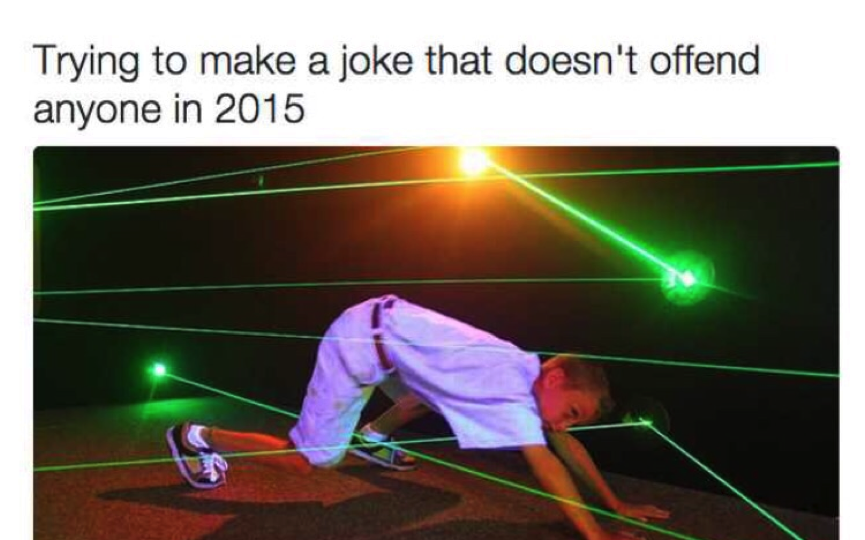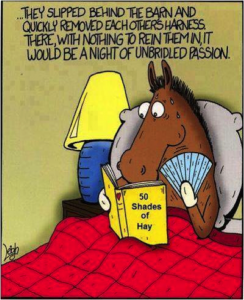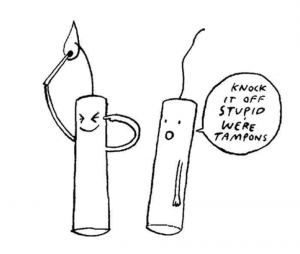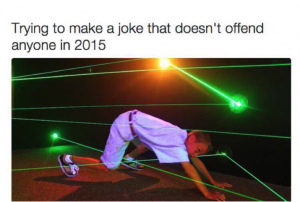
I was involved in creating a social media presence for TARSHI that was rights-based and pleasure-affirming. It was not always easy to be politically correct and witty, funny and engaging at the same time. When we first designed TARSHI’s Facebook page content strategy, we did so keeping in mind that we had to put out content that would engage people with gender- and sexuality-related issues. We were thinking of both people who were already interested and people who had never given it a second thought. Also, people who were interested, but did not yet have the ‘right’ language to articulate their thoughts. And for people who had the words and the terms, our content would serve to further sharpen their rights-based perspective on issues of sexual and reproductive health and rights. And this was Facebook. So, the ‘people’ here were young people, mostly. Wait. Did I say ‘rights-based’? What exactly does that even mean? Well, we would find out, little did we realize, mainly through Friday Fun, a poster series to dispel commonly held myths and give out important and useful sexual and reproductive health & rights (SRHR) tips in the form of quotes, info graphics, link shares, etc. So we needed something that was fun but still got the point across. Every Friday, we would share a funny image to keep the mood of the page light while still talking about feminism and gender-related issues and driving home the point about ‘rights-based’ feminism. It would be funny, it would be weekly, and soon we would have an audience waiting for Fridays. That was the plan.
The plan seemed easy peasy to execute. While the rest of our content would require digging deep into publications, online research, factual accuracy and photoshop skills, Friday Fun was a just a matter of Google search and post. While following a few organisational guidelines, obviously. According to the guidelines, the posts had to be rights-based in nature, which essentially means that they should be disability, sex-work, mental health, LGBTQIA, caste, gender, and race inclusive. In addition to this, the posts should also be pleasure affirming, not offend any religious sentiments, be non-partisan, and free of abuse or slang terms. The last bit really bothered me. What is humour without abuse and slang, I wondered. Being part of the feminist movement, you know only too well that there are many slang terms which were considered offensive years ago, but have now been reclaimed by the movement. Or that many a times slang and abuse make brilliant points through satire. And secretly also, I would absolutely dig the fact that they would be a great way to get likes and comments. People would connect more. It would be ‘mainstream funny’. However, organisationally, we had to avoid this. Because when it’s just a picture, it misses context and can be understood differently by different people. People who might look to TARSHI and its perspective to shape their own may think that using such words was fine. A risk we were not willing to take. And then, how hard is it to Google funny and interesting images on sex, right?
Turns out, it wasn’t rocket science (obviously), but it wasn’t easy either. Little did I realize how hard it was going to be to find ‘rights-based humour’ and ‘politically correct satire’ (if there is such a thing, that is :P). During my two and a half years of handling social media at TARSHI, I found myself conducting Google image searches for hours every week. It’s sex. It’s a glamorous topic. And it’s everywhere! With innumerable jokes, cartoon strips and memes available on it. But few would fulfill our criteria. Sometimes the chosen image was so ‘safe’ that I would hear bursts of laughter from the ends of the office as soon as it was uploaded and I would be told that the chances of it getting any engagement were next to zero.
Personally, it took me on a journey to understand humour. What is it, really? Especially, when it is used to influence attitudes. We know that humour is often based on stereotypes. So, then where do we draw the line between which stereotypes can be joked about and which are offensive? And also, offensive to whom? Who draws the line? Politics of privilege and power have always been an integral part of humour. You cannot laugh at things without context. And many of us learn to laugh at our most painful realities/memories. If our best friend cracks a joke about it, we both may laugh along because we have a shared understanding. But do we find it funny if a stranger makes fun of that very thing? Probably not. The conclusion that I’ve reached so far is that humour is only palatable in a given situation. Else, it may offend people, as you never know all of your audience. You never know what someone has been through and you don’t want to be insensitive. So we had to pick stereotypes sometimes, but be careful to pick the one that was probably the least controversial. The last thing you want to do is hurt someone; that defeats the entire purpose.
Overall, the Friday Fun category turned out to be a huge success. We would get maximum page likes on Fridays, which meant that people were sharing it a lot. Not all Fridays were happy Fridays, though. While there were many times when I deleted an already posted image if it didn’t get any likes within an hour (which is beyond death in Facebook world, so we learnt to always be ready with a standby), there were also some great images shared with brilliant engagement.
A few ‘Friday Fun’s that never made the cut to be posted:
(Yes, I know … disrespectful to those who identify as asexual.)
(Yes, I know… disrespectful to those who believe in or have had an arranged marriage.)
(Yes, it reiterates gender stereotypes, which is exactly what we were trying to deconstruct.)
(Yes, again, I know… reinforces the idea that a bigger penis is more desirable.)
(Yeah, I am daft… this one lacks body image positivity.)
(You are so right…this one gives the impression that ‘fixing’ sexual behaviour using violent means is okay.)
(Yes, again because sexual assault is not a laughing matter.)
And here are a few of my favourites from the ones that did make the cut: (Here is the link in case you want to check out the entire collection. Trust me, it will be worth it.)
So, essentially, working on Friday Fun was like:











